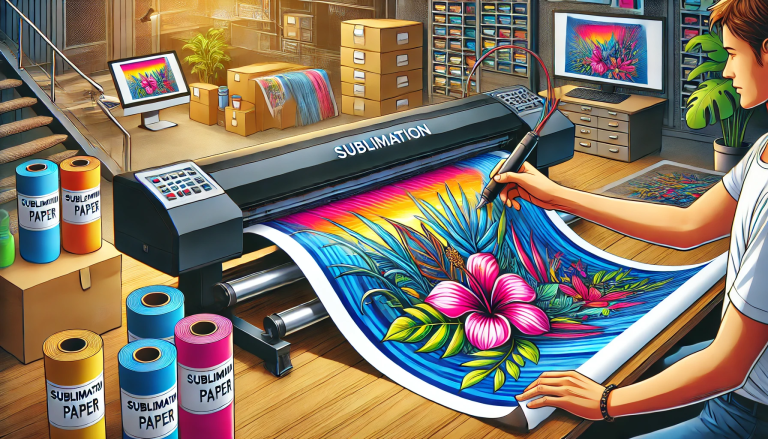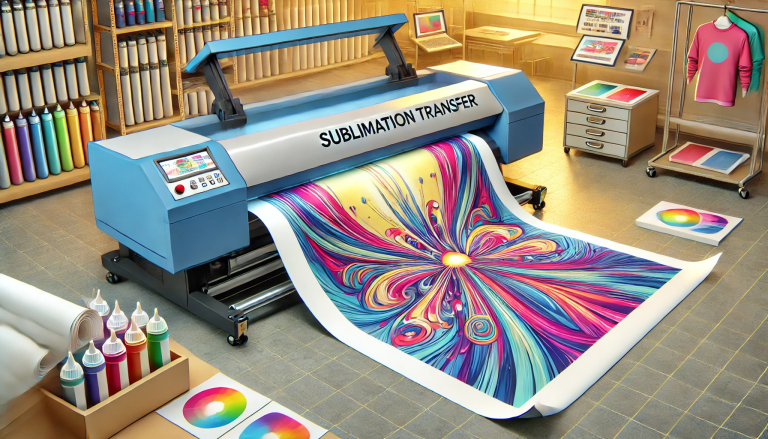“Unlock the Possibilities of Sublimation with A3 Heat Paper!” – Quick Dry Vinyl Sublimation Paper Supplier, Industrial Inkjet Sublimation Paper Factory, Made in China
Introduction
The difference between A3 Sublimation Heat Paper and transfer paper is important to understand when it comes to printing. Sublimation heat paper is specifically designed for use with sublimation printing, while transfer paper is designed for use with inkjet and laser printers. Sublimation heat paper is used to transfer images onto polyester fabrics and other materials, while transfer paper is used to transfer images onto cotton and other fabrics. Both types of paper have their advantages and disadvantages, and it is important to understand the differences between them to choose the right paper for your project.
Understanding the Differences Between A3 Sublimation Heat Paper and Transfer Paper
Sublimation heat transfer paper and transfer paper are two distinct types of paper used in the printing industry. While both are used to transfer images onto a variety of surfaces, there are some key differences between the two. Understanding the differences between these two types of paper can help you choose the right one for your project.
Sublimation heat transfer paper is specifically designed for use with sublimation inks. This type of paper is coated with a special coating that allows the ink to be transferred onto the surface of the material. The report is preheated to a high temperature, which causes the ink to vaporize and be absorbed into the material. This type of paper is ideal for transferring images onto polyester fabrics, mugs, and other hard surfaces.
Transfer paper, on the other hand, is designed for use with solvent-based inks. This type of paper is not coated with a special coating, so the ink is transferred directly onto the surface of the material. The report is preheated to a lower temperature, which causes the ink to dry and adhere to the material. This type of paper is ideal for transferring images onto cotton fabrics, paper, and other soft surfaces.
In conclusion, sublimation heat transfer paper and transfer paper are two distinct types of paper used in the printing industry. While both are used to transfer images onto a variety of surfaces, there are some key differences between the two. Sublimation heat transfer paper is designed for use with sublimation inks and is ideal for transferring images onto polyester fabrics, mugs, and other hard surfaces. Transfer paper is designed for use with solvent-based inks and is ideal for transferring images onto cotton fabrics, paper, and other soft surfaces. Understanding the differences between these two types of paper can help you choose the right one for your project.
Comparing the Different Uses of A3 Sublimation Heat Paper and Transfer Paper
Sublimation heat transfer paper and transfer paper are two distinct types of paper used in the printing industry. Both are used to transfer images onto a variety of surfaces, but they have different uses and advantages.
Sublimation heat transfer paper is used to transfer images onto polyester fabrics and other materials that contain a polyester coating. This type of paper is printed using a sublimation printer and then heated with a heat press. The heat causes the ink to turn into a gas, which is then absorbed into the fabric. This type of paper is ideal for printing vibrant, full-color images onto fabrics.
Transfer paper, on the other hand, is used to transfer images onto cotton fabrics and other materials that do not contain a polyester coating. This type of paper is printed using a standard inkjet printer and then heated with a heat press. The heat causes the ink to bond with the fabric, creating a permanent image. This type of paper is ideal for printing single-color images onto fabrics.
In conclusion, sublimation heat transfer paper and transfer paper are two distinct types of paper used in the printing industry. Sublimation heat transfer paper is used to transfer images onto polyester fabrics, while transfer paper is used to transfer images onto cotton fabrics. Both types of paper are ideal for printing vibrant, full-color images onto fabrics, but they have different uses and advantages.
Exploring the Benefits of A3 Sublimation Heat Paper vs. Transfer Paper
Sublimation heat transfer paper and transfer paper are two popular methods of transferring images onto fabric. Each method has its advantages and disadvantages, and it is important to understand the differences between them to choose the best option for your project.
Sublimation heat transfer paper is a type of paper that is specially designed to be used with a sublimation printer. This type of paper is coated with a special coating that allows the ink to be transferred onto the fabric when exposed to heat. The advantage of using sublimation heat transfer paper is that it produces a high-quality image with vibrant colors that will last a long time. Additionally, the image will not fade or crack over time.
Transfer paper, on the other hand, is a type of paper that is used to transfer an image onto fabric. This type of paper is not coated with a special coating, so the image will not be as vibrant or long-lasting as with sublimation heat transfer paper. Additionally, the image may fade or crack over time.
When deciding between sublimation heat transfer paper and transfer paper, it is important to consider the type of project you are working on. If you are looking for a high-quality image with vibrant colors that will last a long time, then sublimation heat transfer paper is the best option. However, if you are looking for a more cost-effective option, then transfer paper may be the better choice.
No matter which type of paper you choose, it is important to follow the manufacturer’s instructions carefully to ensure the best results. With the right paper and the proper technique, you can create beautiful images that will last for years to come.
Conclusion
In conclusion, A3 Sublimation Heat Paper and transfer paper are two different types of paper used for different purposes. A3 Sublimation Heat Paper is used for printing images onto fabric, while transfer paper is used for transferring images onto other surfaces. Both types of paper have their advantages and disadvantages, so it is important to consider the specific needs of the project before deciding which type of paper to use.



